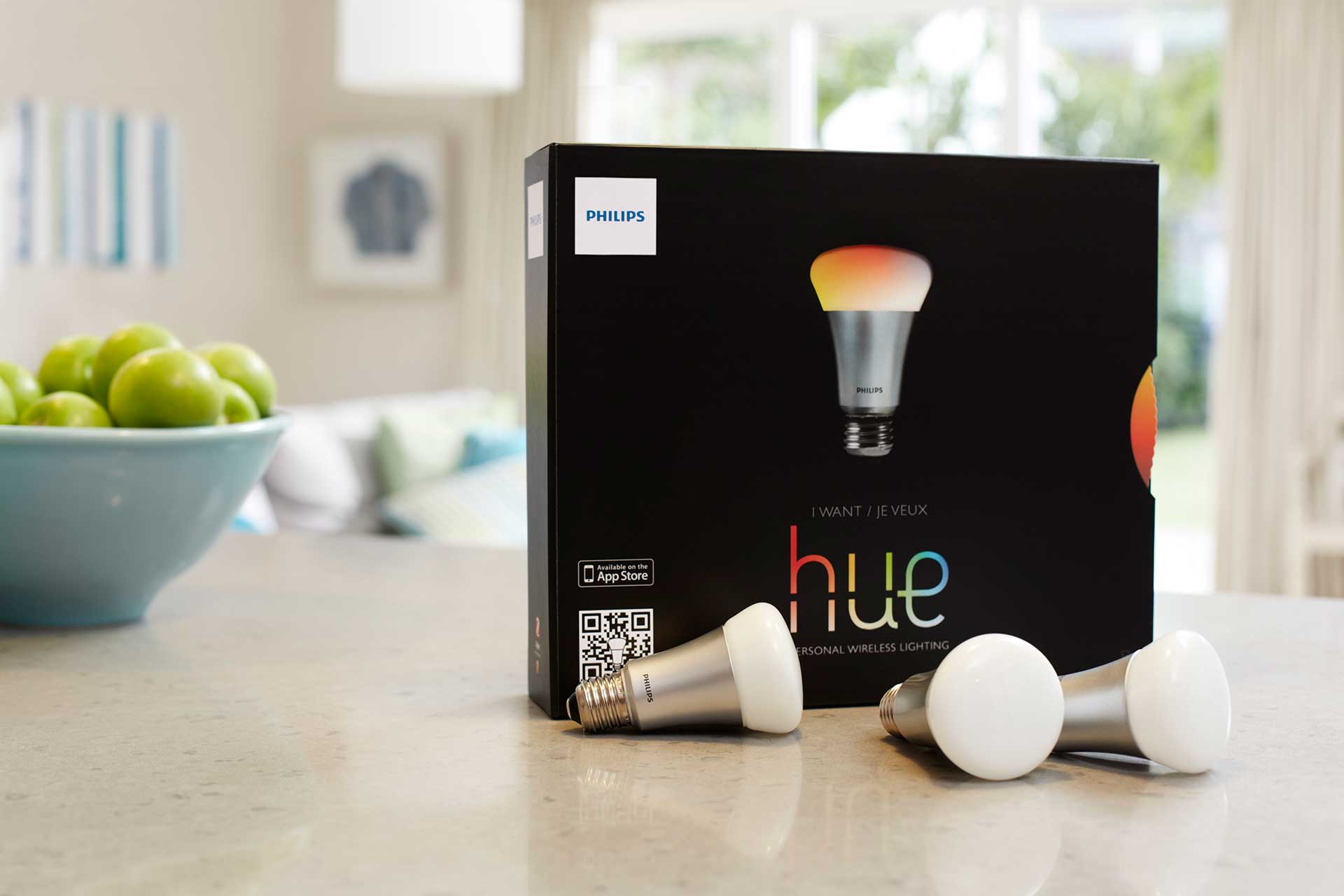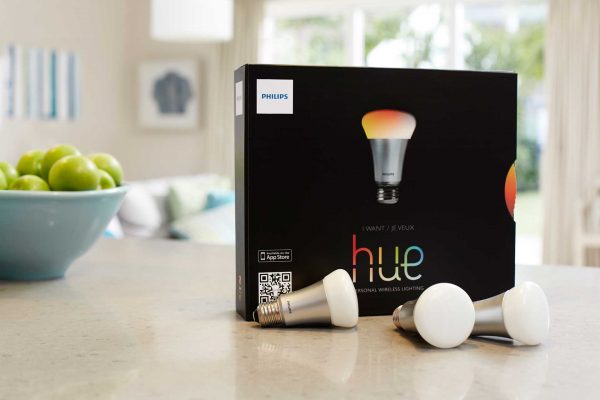The Internet of things (IOT) world has had a lot of attention in the last two years now where literal “things” can now connect to the internet and do things they could never do years ago. We now have refrigerators running operating systems , Voice controlled speakers (Amazon Echo) , Virtual Reality Headsets (Samsung Gear VR) and so on.
What is Hue?
Philips believes there is more to lighting than just illumination hence the creation of the Hue. The Hue is a smart bulb that can take orders, yes, orders! Okay, its not that serious but as long as your orders involve lighting up the hue then its probably possible.
Hue lets you play with tone, brightness and color to create your ideal lighting, which brings up your home in the right atmosphere.

What Can Hue Do For You?
- Invigorate you in the morning: The lights can be programmed for easy home automation where the bulb lights up to blend with the current atmosphere giving you comfortable dimming.

- Relive favorite moments: As a lot of things are automated, you can schedule the bulb to light up in whatever lighting you prefer, with natural lights that help you read and relax. With up to 16 million colors, decorating your home for events has never been this easy.

Smart Control
This is where it gets interesting, you can control the ambiance, color, intensity and a lot more from apps. Philips has an SDK for developers to get started with the hue in building solutions for the light bulb, officially there’s an app for iOS that integrates well with the light bulb. Some awesome examples below:
- Popular SaaS (Software As A Service) provider IFTTT has a lot of recipes to help you get started quickly with setting up the light bulb with popular internet activities.

NOTE: You need an extra starter kit to actually get the Hue to connect to the internet and do a lot more like wireless control.
You can have the Hue purchased on Amazon for $59.99 excluding its starter kit while it costs $197.99 with the starter kit. To learn more about Hue, click.


